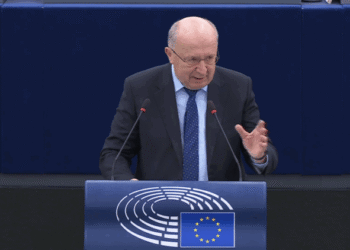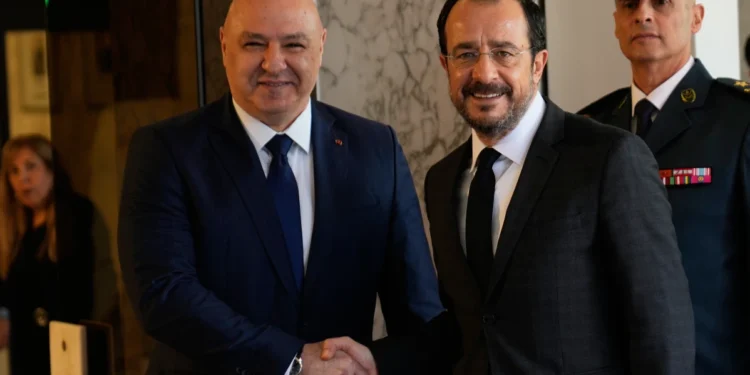The European Commission has announced a military mobility plan to ease red tape and speed up the movement of European armies and tanks across the continent.
It is part of an effort to ensure Europe is ready to defend itself by 2030, in line with warnings from security services that Russia could be able to attack an EU member state within five years.
According to EU officials, if an army sought today to move from a western European port to the EU’s eastern border with Ukraine, Belarus and Russia, it would encounter significant obstacles and delays.
They point to bridges that cannot bear the weight of tanks, railway tunnels that are too small and track gauges too narrow to accommodate military vehicles, as well as EU paperwork on working time and customs.
At least one EU member state requires 45 days’ notice for cross-border troop movements, in contrast to the objective of a three-day border procedure pledged by EU countries in 2024.
According to the EU’s auditors, another unnamed member state once denied entry to a convoy of tanks because they violated weight limits in local road traffic laws.
EU Foreign Policy Chief, Kaja Kallas described the 45-day permission rule as “not good enough” 11 years after Russia’s annexation of Crimea.

She said that the latest EU proposals would underpin, rather than duplicate, NATO’s defence planning.
“Military mobility is a critical insurance policy for European security; you hope you never have to use it to the full capacity, but having it ready ensures more credible deterrence and defence.”
Kaja Kallas
The commission wants to create a “military Schengen” zone, meaning armies can move through the EU’s border-free travel area as easily as civilians. It has proposed an emergency system for cross-border military transport that would give military convoys priority on the transport network.
In an emergency situation, armies would get exemptions from usual EU rules such as mandatory rest periods for drivers of heavy goods vehicles, as well as faster customs procedures for hardware and military supplies, including food, arriving at the EU’s external border.
EU officials have identified a priority list of 500 bridges, tunnels, bridges, roads, ports and airports that need to be strengthened or adapted to handle heavy military traffic, at a cost of about €100bn (£88bn).
A tenfold increase in spending on military mobility of €17.6bn has been earmarked in the proposed EU long-term budget for 2028-34, although the overall €2tn plan faces opposition from many member states hoping to scale back spending.
EU member states are typically required to co-fund the bloc’s infrastructure projects. Most EU countries are members of Nato and pledged in June to spend 5% of their GDP on defence, including 1.5% to protect critical infrastructure and ensure defence preparedness.
EU officials said countries could use existing EU funds for infrastructure to ensure their transport networks were well adapted to military needs, as well as a new €150bn defence loans programme.
EU To Invest In Domestic Weapons Production
The commission also announced a Defense Industry Transformation Roadmap which aims to simplify and unify regulations on the EU’s defense industry, and pool investment into domestic production of weapons, vehicles, satellites, shells and bullets.
The commission estimates that EU defense spending this year will total around 392 billion euros ($457 billion), almost double the amount of four years ago, before Russia launched its full-scale invasion of Ukraine. It believes that some 3.4 trillion euros ($4 trillion) will probably be spent on defense over the next decade.
To help, it intends to propose boosting the EU’s long-term budget for defense and space to 131 billion euros ($153 billion).EU member countries are being urged to buy much of their military equipment within the bloc, working mostly with European suppliers — in some cases with EU help to cut prices and speed up orders.
Under the roadmap, EU nations should only purchase equipment from abroad when costs, performance or supply delays make it preferable.
READ ALSO: Sanitation Crisis Demands Urgent National Action, Says Minister























